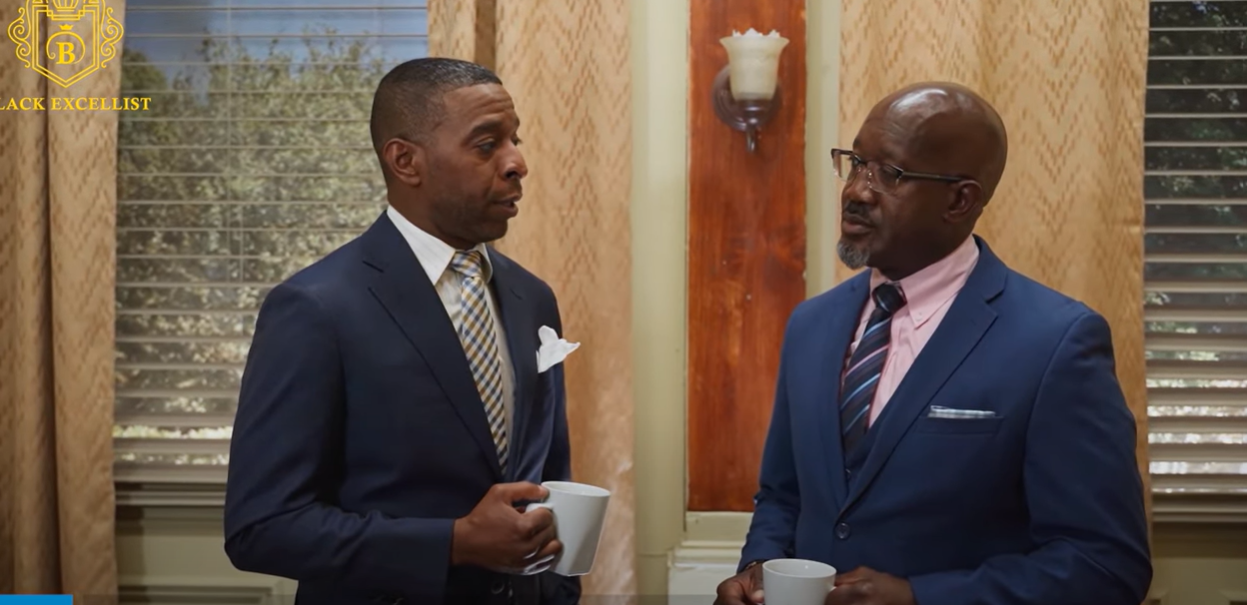**Breaking New Ground: The Ten Essential Traits of Black CEOs Revolutionizing Leadership**

In a world where the corporate landscape is evolving rapidly, the emergence of African-American CEOs as trailblazers is a powerful narrative that demands attention. The latest video from Black Excellist unveils ten pivotal traits that define the success of Black leaders, shedding light on the unique challenges they navigate while setting new benchmarks in executive leadership. This compelling discussion not only celebrates the achievements of these leaders but also offers invaluable insights into the qualities that can inspire the next generation of Black executives.
At the forefront of this transformative journey is the concept of resilience. The video emphasizes that resilience is not merely about survival; it’s about thriving in the face of adversity. Leaders like Ursula Burns, the first Black woman to helm a Fortune 500 company, exemplify this tenacity by turning obstacles into opportunities. Their steadfast vision in the face of systemic barriers sets a precedent for aspiring Black leaders, reinforcing that with determination and hard work, they can achieve greatness.
 Equally vital is the trait of visionary leadership, which empowers Black CEOs to drive meaningful change and shape industries. By anticipating trends and articulating a bold strategic vision, they inspire both teams and communities to rally around a greater purpose. Leaders like Robert F. Smith, founder of Vista Equity Partners, not only build successful enterprises but also commit to giving back, showcasing how visionary leadership can pave the way for broader opportunities for Black professionals.
Equally vital is the trait of visionary leadership, which empowers Black CEOs to drive meaningful change and shape industries. By anticipating trends and articulating a bold strategic vision, they inspire both teams and communities to rally around a greater purpose. Leaders like Robert F. Smith, founder of Vista Equity Partners, not only build successful enterprises but also commit to giving back, showcasing how visionary leadership can pave the way for broader opportunities for Black professionals.
Adaptability is another cornerstone trait highlighted in the video. As industries undergo rapid transformations, the ability to pivot and embrace change is crucial. Black CEOs such as Rosalind Brewer, who has transitioned between major corporations, demonstrate that adaptability fosters innovation and long-term success. Their resilience in navigating new technologies and industry trends sets a powerful example for future leaders.

Strong communication skills are equally indispensable. The video underscores how effective communication enables Black executives to convey their vision with clarity and confidence. This skill fosters collaboration and trust, critical components of successful leadership. Notable figures like Kenneth Chenault, former CEO of American Express, have mastered this art, using their voice to break down barriers and advocate for equity in diverse environments.
Cultural intelligence is a trait that cannot be overlooked. As the marketplace becomes increasingly global and multicultural, Black CEOs must navigate cultural differences with empathy and understanding. Leaders like Melody Hobson, co-CEO of Ariel Investments, illustrate how cultural awareness enhances collaboration and creates inclusive workplaces, ultimately driving innovation and business success.
Confidence and self-belief emerge as driving forces behind successful leadership. The ability to trust one’s vision and expertise, even in the face of skepticism, distinguishes exceptional leaders. Figures like Sheila Johnson, co-founder of BET, have built their empires through unwavering confidence, inspiring others to believe in their vision.

Networking and relationship building are crucial for accessing new opportunities and fostering strategic partnerships. By nurturing meaningful connections, Black CEOs can create pathways for mentorship and collaboration. Byron Allen, founder of Allen Media Group, exemplifies how strong relationships can open doors and amplify the voices of diverse leaders.
Emotional intelligence also plays a significant role in effective leadership. Understanding and managing emotions fosters strong relationships and a positive organizational culture. Leaders like Sunder Brown-Ducket, CEO of Tia, emphasize empathy, creating environments where employees feel valued and engaged.

A commitment to diversity and inclusion is paramount for cultivating workplaces that empower all employees. By championing equitable policies, Black CEOs can break down systemic barriers and prove that diverse teams drive innovation and success. Marvin Ellison, CEO of Lowe’s, exemplifies this commitment, implementing programs that enhance diversity in leadership roles.
Finally, strategic thinking and problem-solving capabilities enable Black CEOs to navigate complex challenges with foresight. Leaders like Rish Leo Dennis have utilized strategic thinking to build successful businesses while prioritizing social impact, ensuring long-term sustainability and competitive advantage.
As the corporate world continues to evolve, the traits highlighted in Black Excellist’s latest video serve as a roadmap for aspiring Black leaders. By embodying resilience, visionary leadership, adaptability, and a commitment to diversity, these trailblazers are not just redefining what is possible for Black executives; they are inspiring future generations to rise and lead with confidence. The time for change is now, and the world is watching as these leaders break barriers and create new pathways to success.
